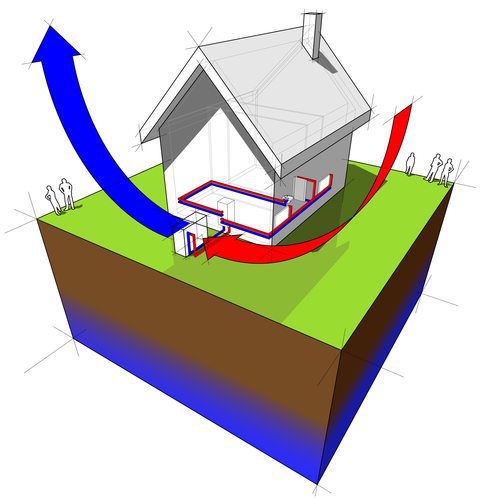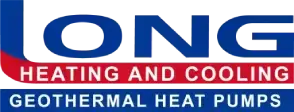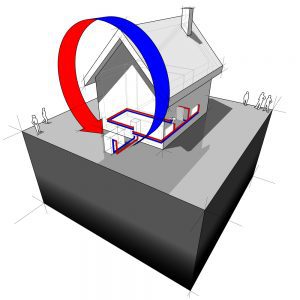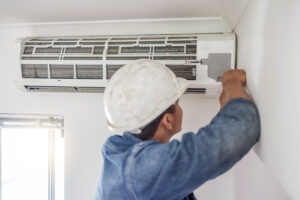Heat Pump Versus Furnace
It’s a debate that homeowners across the country may find themselves struggling with: heat pump versus furnace. Which option is best? Truthfully, both of these systems have pros and cons, so the smartest strategy is to choose the one that best suits your personal climate goals for your family’s home.

While both heat pumps and furnaces are designed to ensure that heat reaches the places where you need it, they tackle that task in completely different ways. When considering the matter of heat pump versus furnace, it helps to understand how the systems work, their advantages, and their disadvantages.
How Heat Pumps Work
It might seem odd, but in terms of operation, a heat pump has more in common with a refrigerator than a furnace. That’s because both refrigerators and heat pumps function by transferring heat from an area with cool air to an area with warm air. With a refrigerator, this creates a cooler space for your use. When heating your home with a heat pump, the system draws heat energy from the cooler air outside and transfers it to the warmer space inside your home, making it feel warmer still. In the summer, a heat pump can be reversed to cool your home by moving heat energy outside. While a heat pump moves heat energy from one area to another to create the desired temperature, it doesn’t actually generate heat, which makes it an energy-efficient option.
How Furnaces Work
Furnaces can be fueled by oil, electricity, or gas, but regardless of the type of fuel used, the basic operating principle is the same. A furnace works by burning fuel to produce heat that is distributed throughout your home’s interior.
Advantages & Disadvantages
- Heat Pumps: The Advantages: Heat pumps offer some significant advantages. For starters, they’re energy-efficient devices because they don’t need to create heat; they simply have to move it. They’re also environmentally friendly because they don’t rely on fossil fuels. The absence of fossil fuels also eliminates the worry of carbon monoxide poisoning. As a major bonus, heat pumps can provide both heating and cooling, so they can keep your space comfortable throughout the year.
- Furnaces: The Advantages: What advantages can a furnace offer? While a heat pump can struggle to draw sufficient heat energy from outside when temperatures dip too low, a furnace’s ability to produce heat is unaffected by the exterior climate. That means that a furnace can keep your home toasty on even the chilliest of winter nights.
- Heat Pumps: The Disadvantages: Nothing is perfect, and heat pumps are no exception. One major disadvantage that critics are quick to cite is the fact that heat pumps cannot provide heat when outdoor temperatures are too cold. After all, it’s hard to move heat energy from the outside to your home’s interior if there is not much heat energy to be found outdoors. Standard air source heat pumps can extract useful heat from exterior air down to about 5 degrees Fahrenheit, but they are often installed with auxiliary heating systems to ensure that sufficient heat is always available. These auxiliary systems can even serve as a backup system in the event of a heat pump malfunction, so users are less likely to be left with no heating during a cold spell. Pairing a heat pump with an auxiliary heating system allows homeowners to enjoy the ideal balance of efficiency and performance.
- Furnaces: The Disadvantages: Where do furnaces fall short? While newer systems offer better efficiency than past models, furnaces still cannot match the efficiency of heat pumps. In addition, furnaces can only provide heat, so they’re only useful in the winter months. Since they cannot be reversed to provide cooling, another form of air conditioning is a must if summer temperatures soar to uncomfortable levels. It’s also worth noting that whenever fuel is burned, there is a risk of carbon monoxide poisoning.
Factors To Consider
When weighing the matter of heat pump versus furnace, what factors should you consider? You’ll need to identify your comfort levels and your heating and cooling goals. It’s also wise to think about the climate in your location and the cost and availability of electricity, oil, and gas there. Naturally, you’ll also want to investigate both the initial price tags and likely operating costs of any systems that you are considering for your home. There is a great deal to think about, so savvy consumers will turn to a reputable heating and cooling company for input and advice.
At Long Heating and Cooling, we’re committed to excellence. We work diligently to stay informed about the latest advantages in equipment, technology, and technique so that we can provide our customers with superior service. To learn more about our services or request a free estimate, contact us today.








